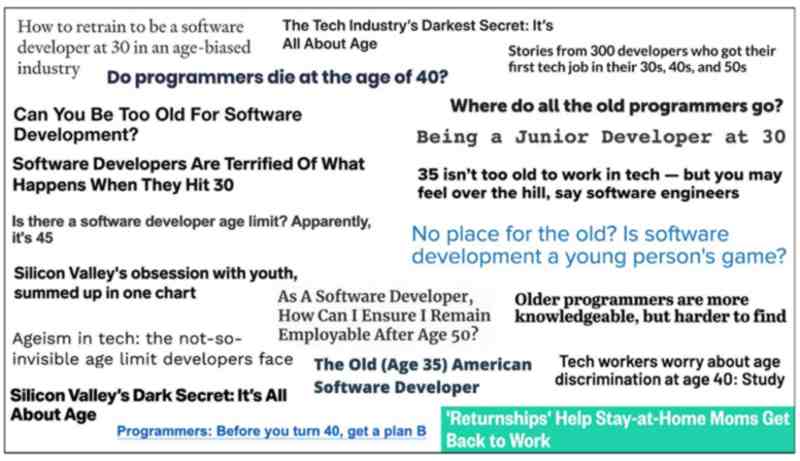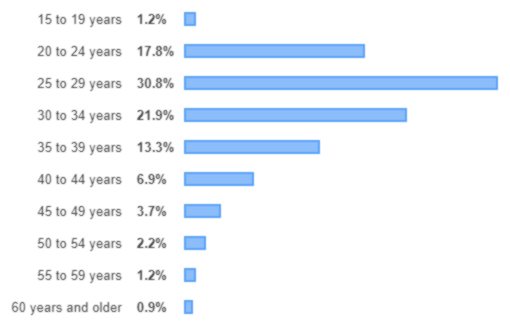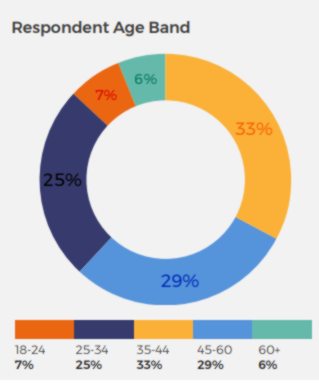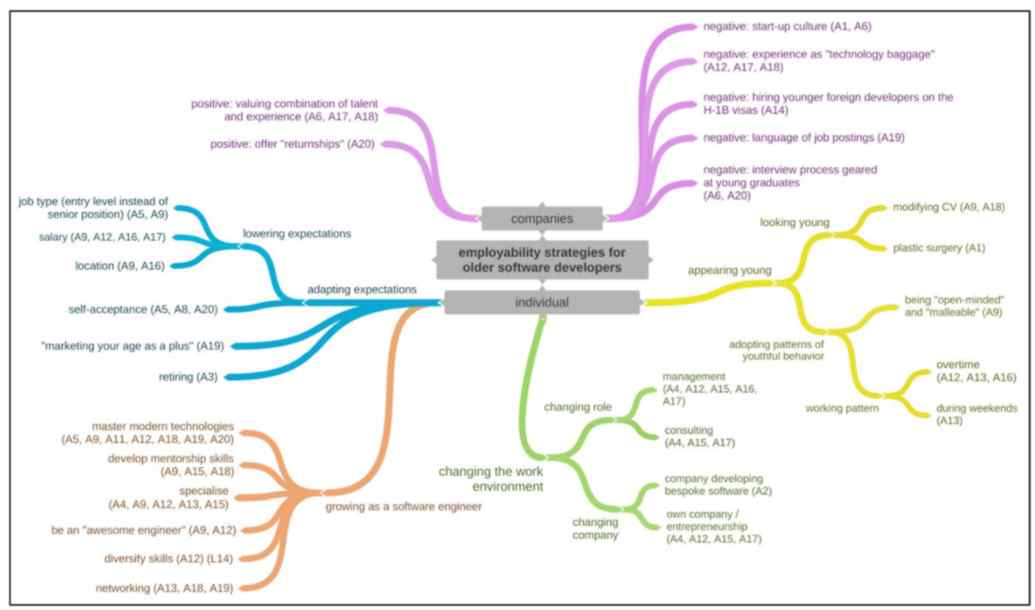| Are Developers Old At 40? Surely Not |
| Written by Sue Gee |
| Wednesday, 15 April 2020 |
|
How old do you have to be to be counted as an old developer? A new study suggests that you could be seen old at 30 - which is well under the average age of software developers. It is well accepted fact that was have an aging population and that people in all industries are going to have to stay in work until an older age than was the norm. This makes the title of a paper recently added to arkiv, "Is 40 the new 60?" both counter-intuitive and concerning. The remainder of the title of the paper by Sebastian Baltes, George Park and Alexander Serebrenik is "How popular media portrays the employability of older software developers" and reports the results of an analysis of popular online articles and their discussion surrounding them on Hacker News. Having done a Google search with the query "age software developer", with the geolocation USA and language English, they them followed links to blogs hosted on Medium or personal websites or articles on sites like TechCrunch or Business Insider. The researchers report that they stopped after collecting 20 articles having noticed that the search results became less and less relevant for their goal which was to discover how age is described in the context of software development. They created a graphic of the articles they selected and the data and the tool used to collect it are available online. It is certainly shocking to see 40, 35 and even 30 juxtaposed with "old". In fact the researchers found that the most common definition of "old" among the articles they selected was 40+ years, followed by 30+ years. Normally one would consider "old" to be the top percentile, or perhaps the top quartile, so what is the age distribution of software developers? We have some conflicting statistics based on surveys. But of course these are always biased and based on small surveys. So before going further I wanted to know how many software developers are there and what is the best estimate of their age led me to the Global Developer Population and Demographic Study 2019 from Evans Data - but only to its press releases since its reports are very expensive to reflect the commercial value of their research. The latest figures estimate that are around 24 million developers worldwide and this will increase by 20% to nearly 30 million by 2024. With around 4.4 million software developers, the United States currently has the largest number, but India is expected to overtake it by 2024. The research paper itself quotes official US Labor Force Statistics for 2019, revealing that the USA has a significant proportion of older developers in their workforce, with 10.7% of all developers in the age range 55 to 64 years and 3.1% in the range of 65 years. I found this statistic, almost 15% of developers aged 55 and over, surprising so I compared it to age distributions we've reported from surveys. Here's the distribution for Professional Developers from the 2019 Stack Overflow Developer Survey Results: Like every other Stack Overflow Developer survey we reported, the peak age for respondents is 25-29, around three quarters are younger than 35 years old and just over 2% are 55 and older. However, the 2019 Skill-Up survey from Packt provides a very different distribution with 35% of respondents over 45, and in fact 13% over 55:
Evans Data for the global age distribution of software developers is somewhat vague but it accords quite well with Packt's findings. In its 2017 press release it stated: Developers 30 and younger account for more than a million more developers than those older than 45. However, the largest concentration of developers is between 30 and 45 years of age. The key question of course is what is the median age of software developers - the point where you can be older or younger than the average. According to Evans Data, from 2017, the median age of software developers age is 36 across all regions and 39 in the USA. So as soon as you reach the median age as a software developer you are already old? What nonsense! The researchers look to Hacker News for potential mitigation strategies at being deprecated in your prime and produce this mind map: The purple-coded ideas at the top are from a corporate perspective with largely negative responses on the right and more positive ones on the right. The most positive idea here is that of valuing older developers for their combination of talent and experience. This is an idea we have reported on before reporting on a study that found a correlation between increasing age and reputation points on Stack Overflow, see see Stack Overflow An Old Programmers Home. There are four color-coded groups of suggestion from an individual point of view. The yellow group is ways to conceal your age by appearing or behaving in a youthful fashion and taking extreme measures to keep up - such as working longer hours. These appear at the right as befits negative thinking. The green group are strategies that involve changing role - moving into management or consultancy or starting your own company. The blue group are strategies that involve lowering, or at least adapting your expectations and the only ones I can approve of are "marketing you age as a plus" and "self acceptance". To my mind these to merit being put into the orange group of "growing as a software engineer:
What these strategies have in common is that you take advantage of and build on your experience. Yes it involves developing new skills but with age comes maturity, and like fine wines, older developers have a lot to offer. More InformationIs 40 the new 60? How popular media portrays the employability of older software developers by Sebastian Baltes, George Park & Alexander Serebrenik Related ArticlesStack Overflow Publishes Largest Ever Survey Is Programming Skill Related To Age? To be informed about new articles on I Programmer, sign up for our weekly newsletter, subscribe to the RSS feed and follow us on Twitter, Facebook or Linkedin.
Comments
or email your comment to: comments@i-programmer.info
|
| Last Updated ( Wednesday, 22 April 2020 ) |







